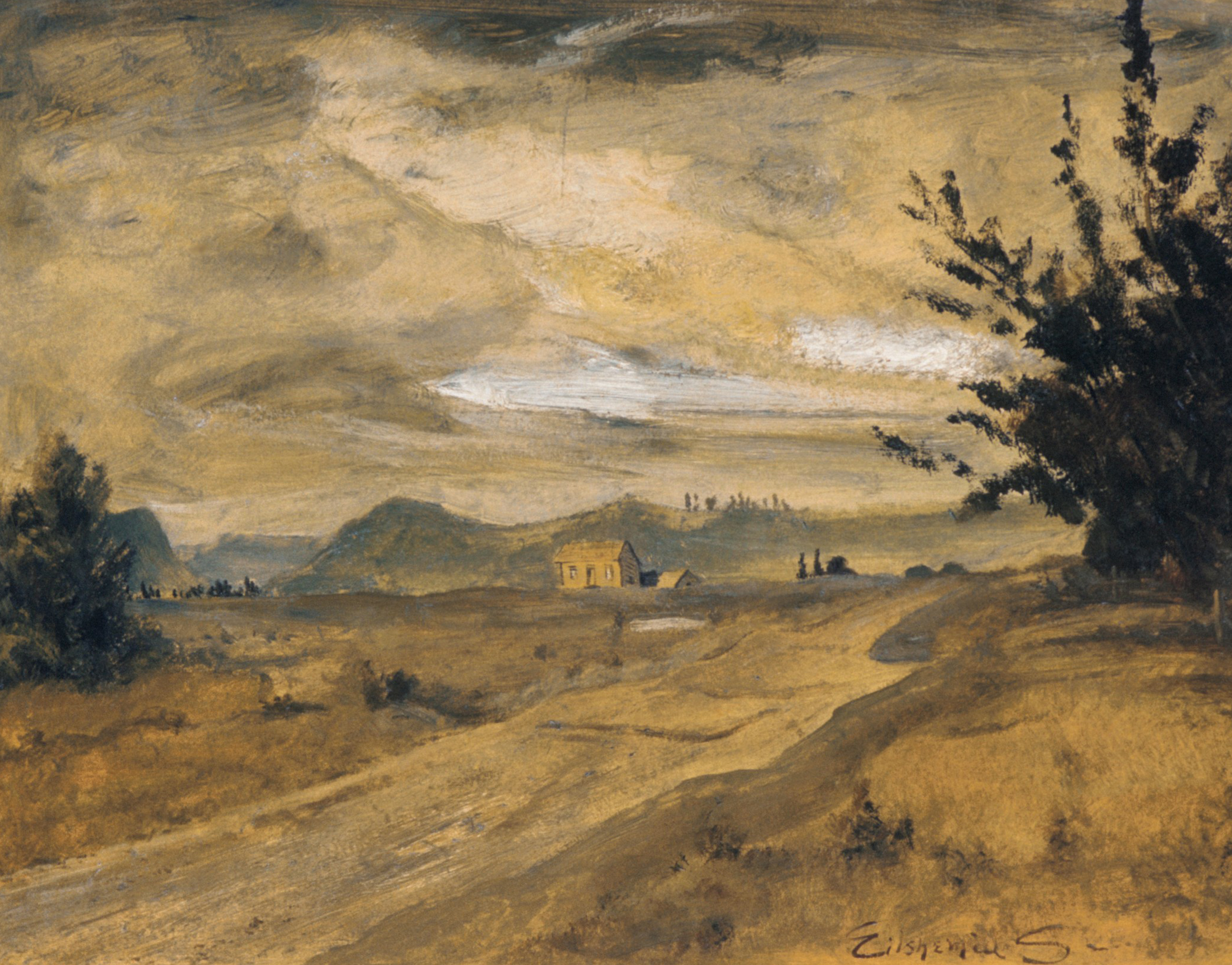
The Haunted House, by Louis Michel Eilshemius, c. 1917. The Metropolitan Museum of Art, George A. Hearn Fund, 1937.
• Käthe Kollwitz watches the world crumble after her son dies in World War I: “Life must continue. She begins to clear out her dead son’s room, so that her mother, who’s suffering from dementia, can move in. ‘This is such sorrowful work,’ she sighs.” (NYR Daily)
• Why do Victorian mansions make such good haunted houses? (JSTOR Daily)
• Revisiting the Gary Hart campaign. (The Atlantic)
• On Mark Twain: “The best of Twain can’t be matched; the worst stinks; and they are served on the same plate.” (Times Literary Supplement)
• A summer heat wave in the UK made lots of work for archaeologists. (Archaeology)
• An oral history of the New Jersey club the Stone Pony. (The New York Times)
• On the now-bankrupt Sears and the history of racism in retail: “Imagine a catalog coming in the mail and you can buy anything: hats, clothes, shirts, pants, overalls, farm equipment, guitars, guns—imagine buying guns in the era of Jim Crow through the catalog and what that would mean to black Americans. And the prices are fair and credit, of course, is the real breakthrough—you can spend no money. It also undermines white control, shopkeeper control, and all other kinds of control.” (Jezebel)
• Could this graffiti about being very full after a meal change what we know about Pompeii? Was Pliny the Younger wrong? “The message, written in charcoal on the wall of the house, reads, ‘XVI K Nov in [d]ulsit pro masumis esurit [ions],’ which roughly translates as ‘he over-indulged in food.’ ”(Quartz)
• This week in unexpected headlines: “Archaeologists find ‘vampire burial’ site of a child feared capable of rising from the dead.” (The Washington Post)
• And this week in obituaries: Paul Allen, a sailor who tried to clean up the ocean, a translator of Asterix and Franz Kafka, the woman who helped get America hooked on soy, and the “Prince of Chintz.”